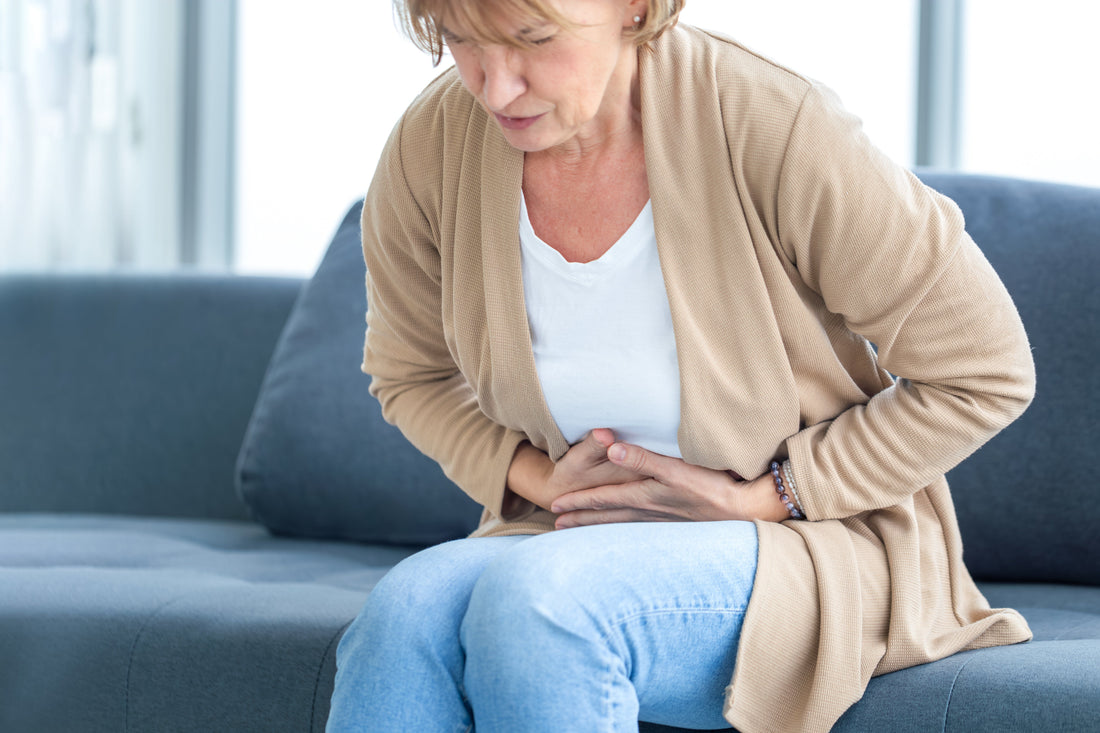Hello, friends—Dr. Chiedu here!
With decades in clinical practice, I understand some topics are easier to chat about than others. Constipation probably isn’t at the top of your dinner-party conversation list, but it’s incredibly common and genuinely impacts daily life for millions. As your guide to holistic, functional health, I promise this: relief is within reach, naturally and gently!
Let's unravel the mystery of constipation together, explore why it happens, and uncover simple, natural strategies to restore balance to your gut. Grab your favorite tea, get comfy, and let’s get started!
What exactly is Constipation?
Constipation happens when bowel movements become infrequent or difficult to pass. Common signs include fewer than three bowel movements per week, hard or lumpy stools, straining, and feeling like you're not fully emptying your bowels. Remember, constipation isn't a disease—it's a symptom signaling that your body might need some extra care.
Just how common is Constipation?
Constipation affects about 16% of adults in the U.S., and this number increases significantly as we age—affecting up to 33% of people over 60. Globally, approximately 20% of individuals face constipation at some point in their lifetime. Women, older adults, and those with lower fiber diets often experience constipation more frequently.
Common causes of Constipation
Let's break down some typical causes:
Dietary Factors:
-
Low fiber intake
-
Dehydration
-
Excessive caffeine or alcohol consumption
Medical Conditions:
-
Hypothyroidism
-
Diabetes
-
Irritable bowel syndrome (IBS)
-
Pelvic floor disorders
Medications:
-
Painkillers
-
Antacids
-
Antidepressants
Lifestyle Factors:
-
Stress
-
Lack of exercise
-
Voluntary stool retention
The Daily Impact of Constipation
Constipation isn't just physically uncomfortable—it disrupts everyday life. Severe constipation can cause fatigue, bloating, and pain during routine activities like sitting, walking, or exercising. It can even lead to social withdrawal due to embarrassment or worry about worsening symptoms. If not addressed, chronic constipation can cause complications like hemorrhoids or anal fissures.
Natural Self-Care and Empowerment
At the heart of Functional Medicine, we aim to address root causes, not just symptoms. Here are my top tips to help you naturally relieve constipation:
1. Dietary Changes:
Increase fiber by incorporating more whole grains, fresh fruits, and vegetables. If you suspect food sensitivities—especially gluten or dairy—consider an elimination diet to pinpoint triggers.
2. Hydration:
Drinking sufficient water softens stools, making them easier to pass. Aim for at least two liters daily, and more if you're active and sweating.
3. Helpful Supplements:
-
Magnesium: Boosts gut motility gently.
-
Psyllium Husk: Adds bulk to stool.
-
Triphala & Cape Aloe: Support natural bowel movements.
-
Probiotics: Enhance gut microbiome balance and overall digestive health.
4. Lifestyle Adjustments:
Regular physical activity, even something as simple as daily walking, can significantly stimulate gut motility. Incorporating stress-reduction techniques like yoga, tai chi, or meditation can also improve digestive health.
5. Complementary Therapies:
Acupuncture and biofeedback have shown positive results in supporting gut motility and reducing stress-related digestive issues.
6. Functional Medicine Lab Testing:
Working with a Functional Medicine practitioner can help identify hidden causes like microbiome imbalances or nutrient deficiencies through targeted lab tests.
Applying the KISS Principle
Keep It Simple and Smart! Constipation might seem minor, but it can greatly impact your quality of life. By combining dietary adjustments, lifestyle improvements, and Functional Medicine therapies, you can naturally restore balance to your digestive system.
Your gut health plays a huge role in your overall well-being. Simple daily changes can truly transform your digestive comfort. If constipation remains stubborn, don't hesitate to consult a Functional Medicine practitioner who can explore further.
Here's to happier, healthier digestion—naturally!
Warm regards,
Dr. Chiedu
References:
